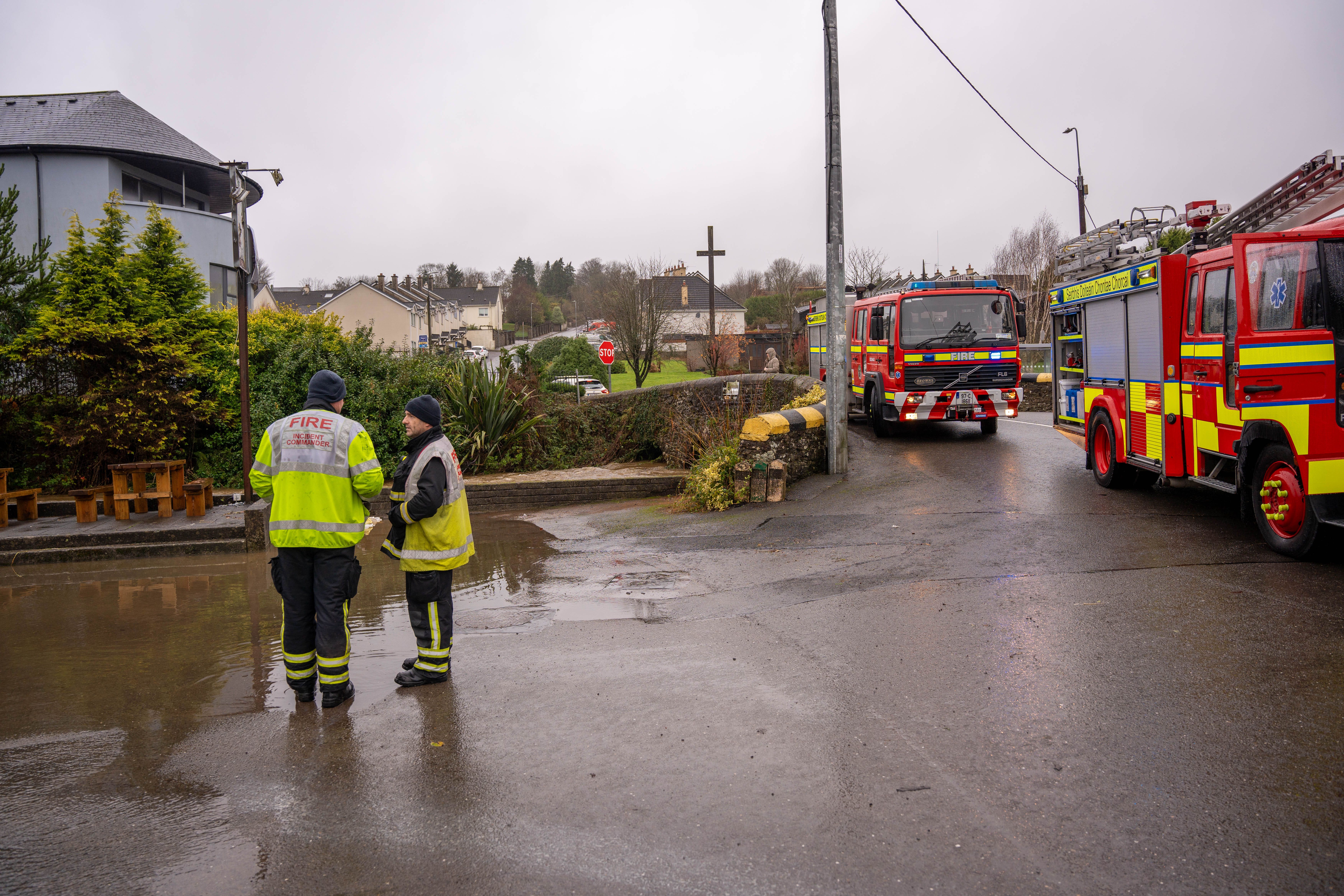Clean-up begins after Storm Bert as thousands still left without power
‘You can’t miss a day’s trade. I think that’s what’s going to really hurt us,’ one Cork business owner said.

Your support helps us to tell the story
From reproductive rights to climate change to Big Tech, The Independent is on the ground when the story is developing. Whether it's investigating the financials of Elon Musk's pro-Trump PAC or producing our latest documentary, 'The A Word', which shines a light on the American women fighting for reproductive rights, we know how important it is to parse out the facts from the messaging.
At such a critical moment in US history, we need reporters on the ground. Your donation allows us to keep sending journalists to speak to both sides of the story.
The Independent is trusted by Americans across the entire political spectrum. And unlike many other quality news outlets, we choose not to lock Americans out of our reporting and analysis with paywalls. We believe quality journalism should be available to everyone, paid for by those who can afford it.
Your support makes all the difference.Clean-up operations are under way after Storm Bert swept across the island of Ireland, causing flooding and thousands of power outages.
Power cuts affected 60,000 customers at the height of the outage; ESB teams are still working to restore supplies to the thousands still left without electricity.
Status red rain warnings were in place for Cork and Galway until 10am on Saturday, with an orange alert for rain in place for counties Waterford, Kerry, Clare, Mayo, Sligo and Leitrim.
A yellow alert for wind and rain warnings was in place for most counties until midday on Saturday, but another Status yellow warning is in place from 5pm until 2am on Sunday for six counties.
Those are Cork, Kerry, Waterford, Carlow, Kilkenny, Wexford and Wicklow.
Bridge Street in Killybegs, Co Donegal, is among the areas worst-hit by the storm – with homes, businesses and charities along the street affected by dramatic flooding overnight.
There was also bad flooding in west Limerick, where the Feale River burst its banks, and on roads in Galway and Cork.
Rebecca Mullen, of The Flour House bakery in Riverstick, Co Cork, said that Storm Babet flooded the bakery last October, and the bakery had flooded again after Storm Bert.
They had received grants from the Red Cross to help them through the last flood where a lot of damage was done.
“Without those grants we really wouldn’t have a business today, it’s just really important that small businesses survive weather systems,” she told the PA news agency.
“Saturday is one of our busiest days, we’ve already had to cancel a market because of the weather system, so now we’ve obviously had to shut the shop today, so we’ll be losing money there.
“I’ve done deliveries of cakes today where I can to the people who have ordered, but now it’s the clean up, its the cost of getting the staff back in, extra hours, working out what is salvageable and what isn’t.”
She said small businesses are already struggling because of rising costs such as the 13.5% VAT rate and staff pay.
“Every day counts. You can’t miss a day’s trade. I think that’s what’s going to really hurt us. Every single piece of coinage is required to get us through.”
In Northern Ireland, the Department for Infrastructure said its roads and rivers teams responded to more than 500 incidents since the yellow alert for rain and snow was issued overnight.
It said that roads across counties Tyrone, Down and Antrim were blocked by trees and flood waters, and properties were flooded in Dundonald, Kilcoo, Coalisland and Ballinamallard as well a Royal Mail property in Mallusk.
“The Emergency Flooding Payment Scheme has been activated by the Department for Communities,” it said.
“The weather warning has now passed and although most rivers have now peaked, staff continue to liaise with multi-agency partners and to monitor water levels and remove debris from watercourses to help floodwaters to get away.
“Flooding was prevented in many areas due to the proactive screen maintenance work being undertaken by staff who continue to monitor watercourses.
“Please report any incidents of flooding to the Flooding Incident Line 0300 2000 100.”